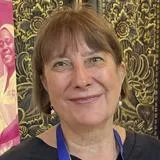Facilitating choice, framing choice: the experiences of staff working in pre-implantation genetic diagnosis
Investigators: C.Williams*, B.Farsides, P.Braude, K.Ehrich, R.Scott, J.Sandall.
Project Funding: Wellcome Trust Biomedical Ethics Programme
With its ability to choose the genetic characteristics of potential children, pre-implantation genetic diagnosis (PGD) has been described as a ‘central ethical turning point’. Amongst the dilemmas that have recently attracted public debate are the selection of embryos on the grounds of sex alone, and in order to provide therapy for a sick sibling. The project was primarily a case study of staff at two English teaching hospitals, working in closely linked PGD and Assisted Conception teams. PGD offers technological promise of increased reproductive choice and arguably heralds a new era of predictive medicine. However, the application of PGD is replete with ethical problems and it can be envisaged that increasingly complicated cases will present themselves as new technologies emerge.

